Trump's Vegas Hotel Settles Union-Busting Allegations
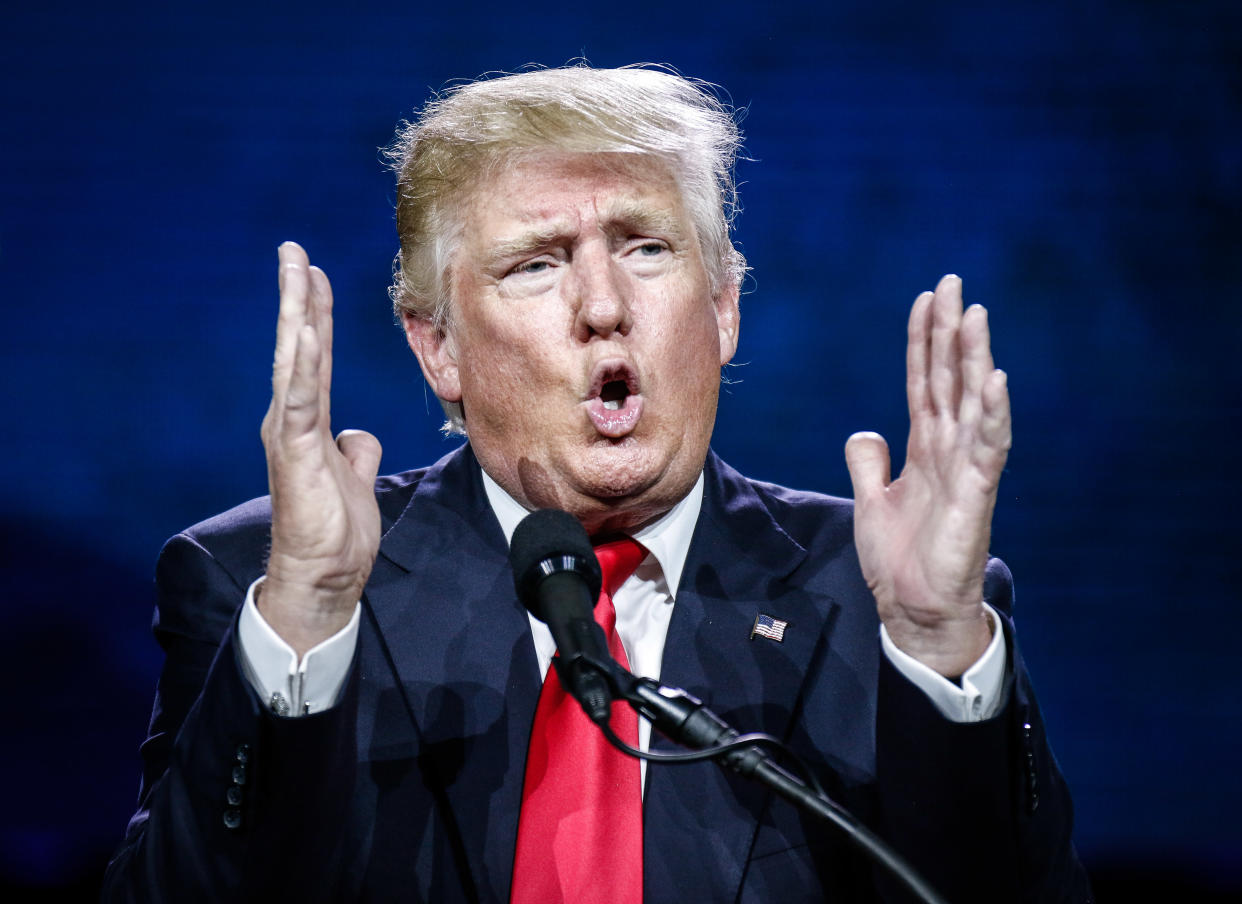
Donald Trump likes to say that he doesn’t settle legal disputes. After all, why settle if you’re bound to win?
Well, Trump’s flashy Las Vegas hotel apparently didn’t get the “no settling” memo from the Republican nominee.
The Trump International Hotel ― a joint venture between Trump and casino magnate Phil Ruffin ― has agreed to settle charges that it retaliated against two hotel employees for union organizing. The hotel will shell out $11,200 in order to resolve the union-busting allegations, according to settlement documents from the National Labor Relations Board.
Alma Zamarin, a food server at the property, said she was treated unfairly by management for years because she supported the union. She’ll receive $1,500 in pay as part of the agreement.
“I finally have justice,” Zamarin said in a statement through the Culinary Workers Union, a local of Unite Here that represents 57,000 service workers, many of them on the Vegas strip. “I’m not done fighting to make my workplace better ― I will keep going until Donald Trump and his son, Eric Trump, sits down and negotiates a good contract with their employees.”
Zamarin claimed she was denied a job transfer because of her union sympathies. Another worker, Michael Campus, said his hours were reduced for the same reason. Campus will be paid $9,700 under the agreement. If those amounts seem small, it’s because U.S. labor law does not allow workers to pursue damages if their union rights were violated ― they can only seek back wages and reinstatement on the job.
The hotel also agreed to post a notice informing employees of their rights under the law.
The settlement was part of an ongoing and ugly labor dispute at the Trump International. In December, housekeepers and other low-wage workers at the hotel voted to join the Culinary Workers Union, despite a lengthy anti-union campaign waged by the hotel. As The Huffington Post first reported earlier this month, Trump Ruffin LLC spent more than half a million dollars on consultants whose job is to convince workers to vote down the union. The union won the election anyway, by a vote of 238 to 209, and the NLRB board certified the results.
But the hotel still hasn’t acknowledged the workers’ union or begun bargaining. Instead, it appealed to the NLRB asking that the election results be thrown out. Meanwhile, the general counsel for the board, who functions as a pseudo-prosecutor, issued a series of complaints against the hotel, accusing it of firing one employee, discriminating against another, and dangling benefits in front of workers to encourage them to vote down the union.
Under U.S. law, it’s illegal to retaliate against workers for supporting a union, or to promise them rewards if they keep the workplace union-free. When workers feel their rights were violated, they can file so-called unfair labor practice charges against their employer, as the Trump International workers did. In this case, the board’s general counsel found enough merit in the workers’ claims to pursue charges against the hotel.
The settlement resolves just one piece of the larger dispute.
Unlike typical Republican presidential candidates, Trump is making a direct play for union votes, predicting that union members in general will support him over Hillary Clinton. The tussle in Vegas has undermined his claims that he gets along well with unions as a businessman and would better serve the interests of union members as president. Organized labor on the whole is campaigning hard against him.
The culinary union has accused Trump International of stalling, saying the hotel should sit down with the workers and start bargaining a first contract. As Bethany Khan, a union spokeswoman, recently told HuffPost, “They’re running out of time and options to delay this.”
Editor’s note: Donald Trump regularly incites political violence and is a serial liar, rampant xenophobe, racist, misogynist and birther who has repeatedly pledged to ban all Muslims ― 1.6 billion members of an entire religion ― from entering the U.S.
Also on HuffPost
Former Massachusetts Gov. Mitt Romney
!["I simply can’t put my name down as someone who voted for principles that suggest racism or xenophobia, misogyny, bigotry, [for someone] who’s been vulgar time and time again,” <a href="http://www.huffingtonpost.com/entry/mitt-romney-trump-racism_us_575b3a31e4b0ced23ca8282a">Romney said in June</a>. “I don’t want to be associated with that in any way, shape or form.”](https://s.yimg.com/ny/api/res/1.2/xtbClhgHjQxFvvvhJ7t2KA--/YXBwaWQ9aGlnaGxhbmRlcjt3PTk2MA--/https://img.huffingtonpost.com/asset/5772d59a1800002500fa2e56.jpg)
Sen. Ben Sasse (Neb.)
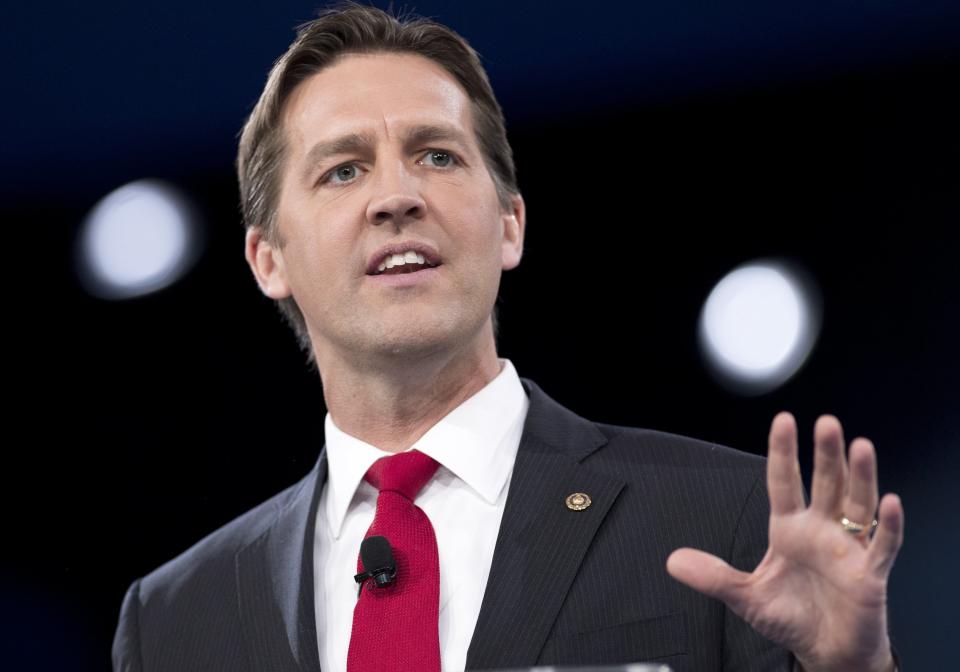
Former Treasury Secretary Hank Paulson
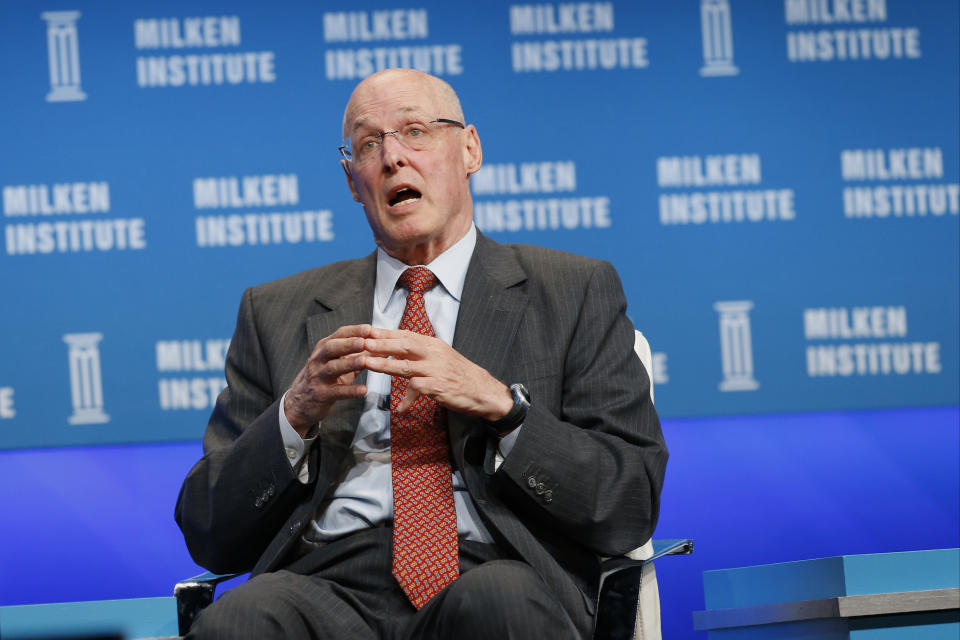
Former Florida Gov. Jeb Bush
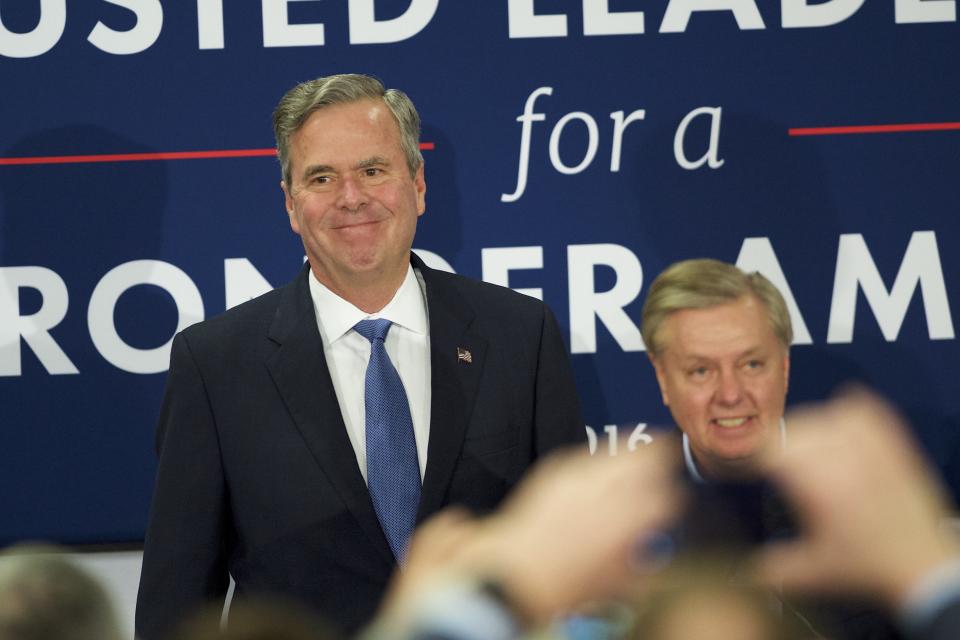
Sen. Lindsey Graham (S.C.)
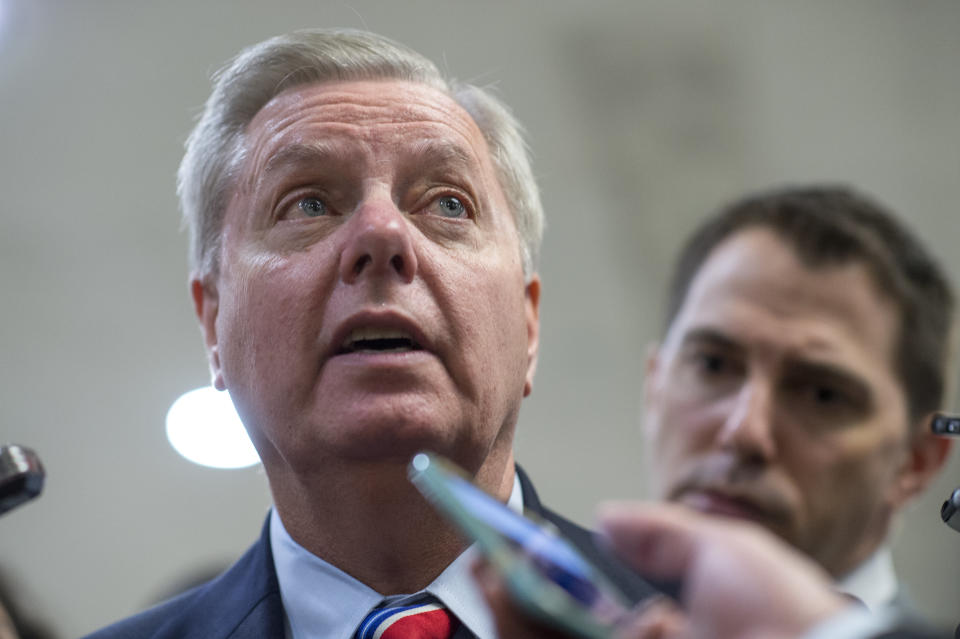
"I don't believe that Donald Trump has the temperament and judgment to be commander in chief. I think Donald Trump is going to places where very few people have gone and I'm not going with him," he said.
Former Deputy Secretary of State Richard Armitage

Former National Security Advisor Brent Scowcroft
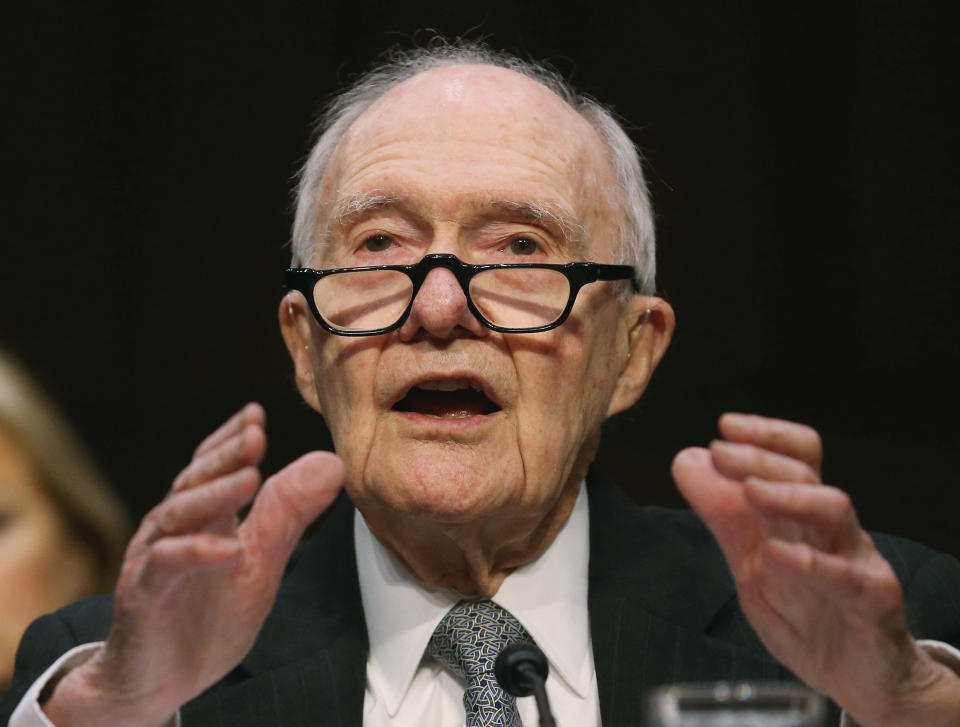
Sen. Mark Kirk (Ill.)
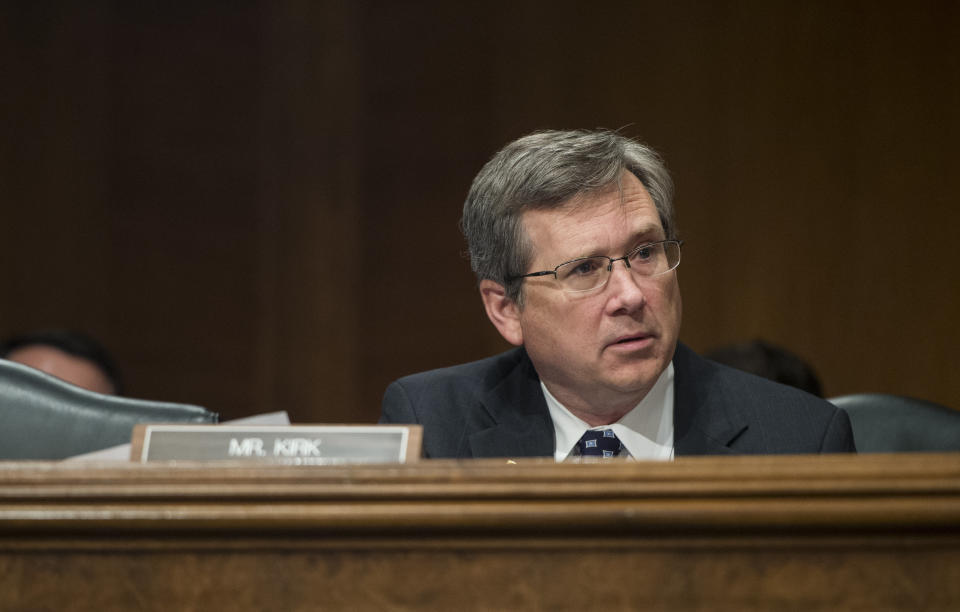
"I cannot and will not support my party’s nominee for President,” he said.
Sen. Jeff Flake (Ariz.)
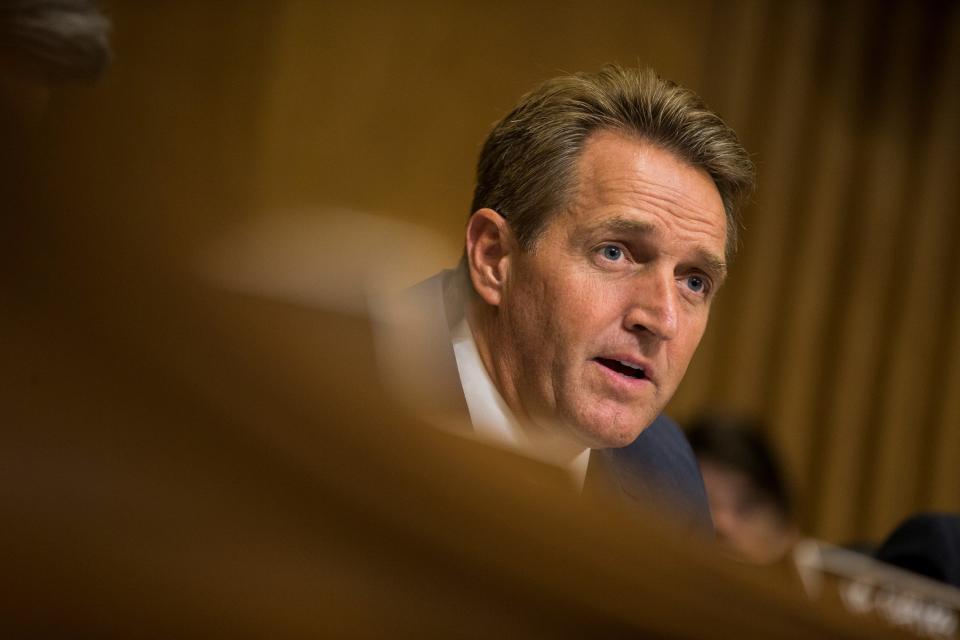
Rep. Bob Dold (Ill.)
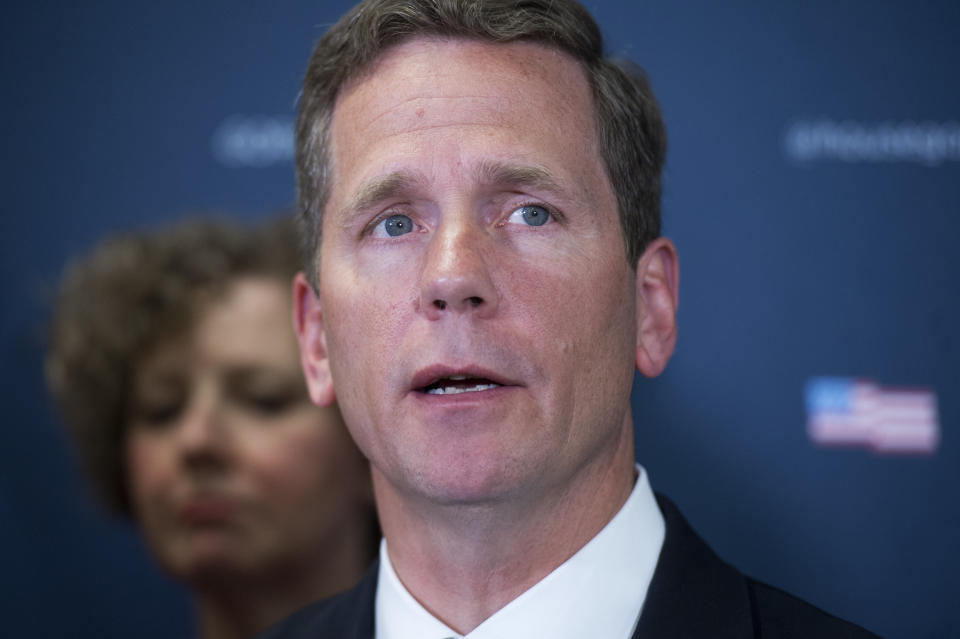
Rep. Carlos Curbelo (Fla.)
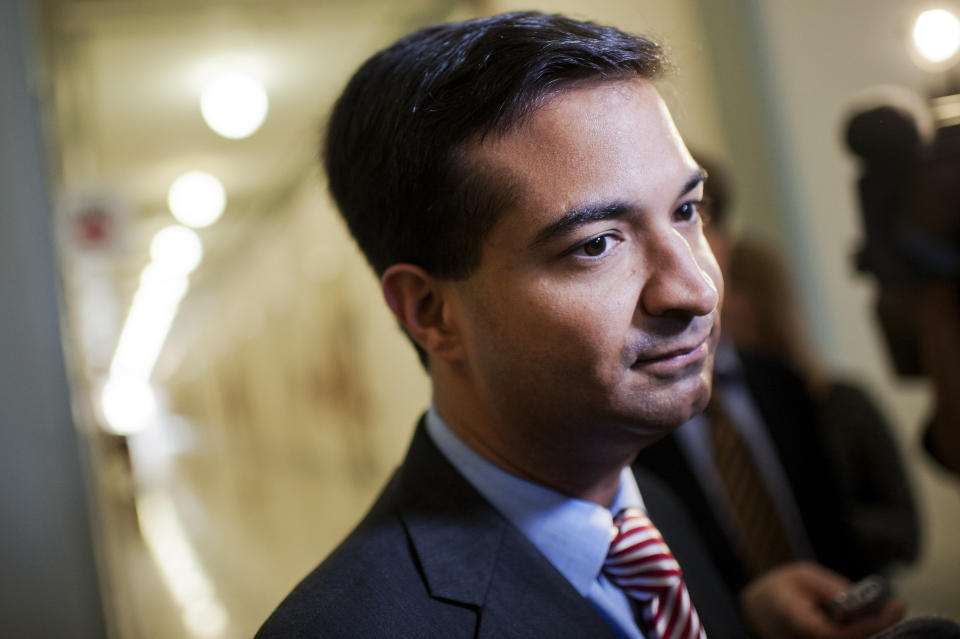
Rep. Ileana Ros-Lehtinen (Fla.)

Sen. Susan Collins (R-Maine)

Sen. Dean Heller (R-Nev.)

Sen. Ted Cruz (R-Texas)
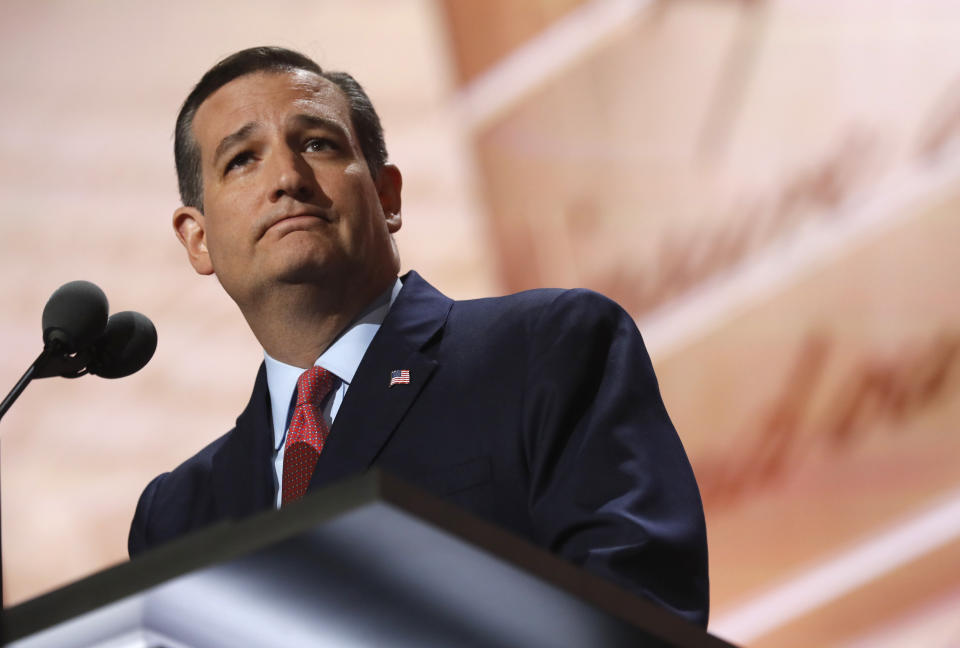
Sen. Mike Lee (R-Utah)
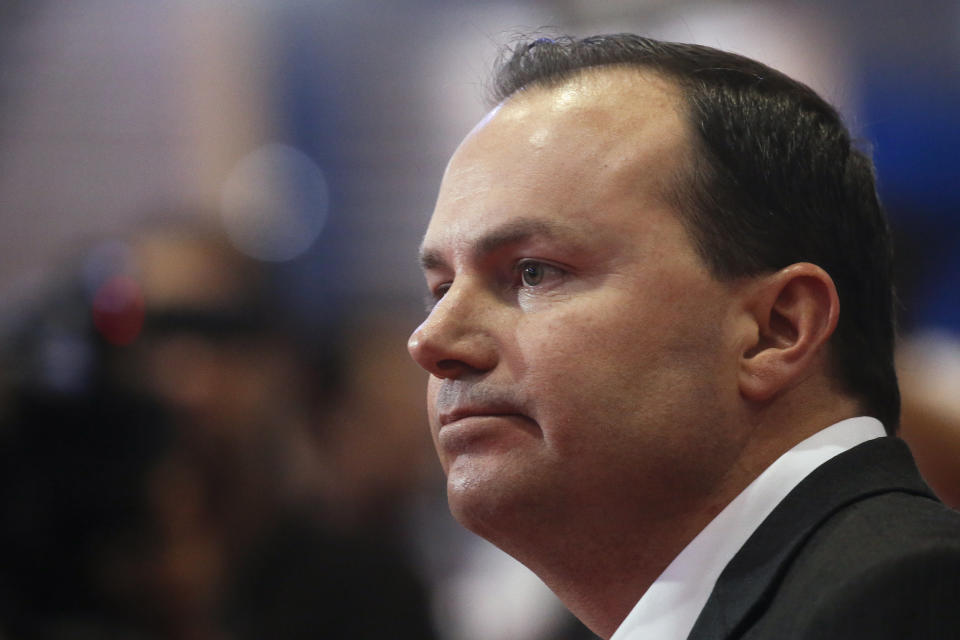
Love HuffPost? Become a founding member of HuffPost Plus today.
This article originally appeared on HuffPost.

